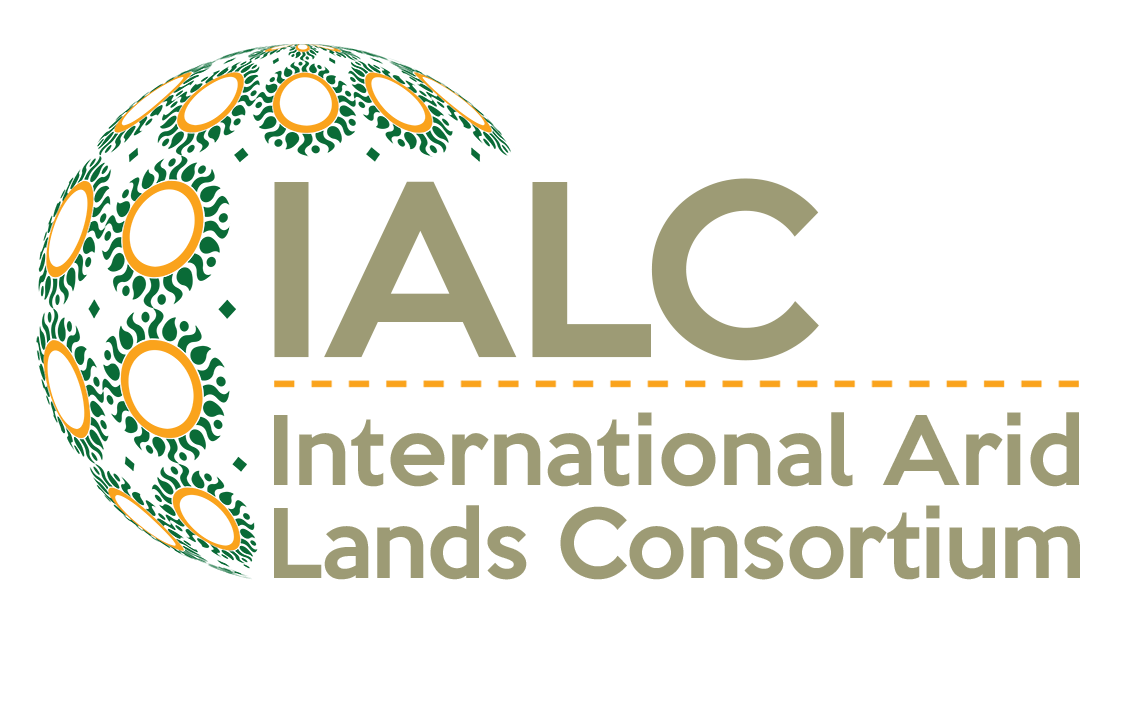International Arid Lands Consortium Promotes Long Term Water Savings for U.S. Farmers
The International Arid Lands Consortium (IALC) demonstrates benefits of drip irrigation to farmers in the arid southwest
September 7, 2000 (Tucson, AZ)--Drip irrigation technology allows a 40% reduction in water use compared with traditional sprinkler irrigation of alfalfa, without any reduction in yield. The International Arid Lands Consortium (IALC) and researchers from New Mexico State University are conducting a three-year project, entitled, "Water Conservation through Drip Irrigated Alfalfa Cropping Systems." The project seeks to demonstrate to farmers, Cooperative Extension Service personnel, Natural Resource and Conservation Service personnel, and crop advisors, the effectiveness of utilizing drip irrigation for alfalfa production in a common crop rotation schema in the arid southwestern U.S. True water conservation measures on a watershed scale must address those enterprises that require the most amount of water. In the irrigated, southwestern United States alfalfa is a major component in the crop rotation schema. Traditional methods of irrigation include flood and sprinkler irrigation. Recent improvements in drip tape design have improved the longevity and usefulness of low water delivery systems. Demonstrating the costs, benefits, and agronomic management practices of subsurface drip irrigation is key to promoting long term water savings.
The objectives of the project are to demonstrate sufficient alfalfa acreage under drip irrigation to assist clientele in making decisions regarding subsurface drip irrigation installation, demonstrate yield and quality differences among alfalfa varieties grown under drip and sprinkler irrigation and how drought tolerant varieties can improve water savings, produce an enterprise budget for alfalfa production utilizing drip irrigation to facilitate acceptance of the technology and the changes in farm management required to maintain economic production, and demonstrate, through project notes, system maintenance, fertilizer requirements, weed control strategies, and irrigation timing, how growers can maintain proper water movement through the soil profile.
A drip irrigation system, installed at the New Mexico State University Agricultural Science Center at Artesia, demonstrates subsurface irrigation practices on property that is accessible to all clientele. Alfalfa and subsequent row crops are monitored for yield and quality parameters as related to water application levels through subsurface drip irrigation and sprinkler irrigation. Records are maintained to establish an enterprise budget utilizing this technology, and to demonstrate water conservation and agronomic practices necessary to efficiently utilize the technology. All records are shared with clientele at workshops and crop associations.
The researchers anticipate being able to demonstrate that alfalfa yields can be maintained while reducing water application by at least 40% using drip irrigation versus sprinkler irrigation. The use of drought tolerant crop varieties to further improve water savings are also demonstrated. Changes in the level of farm labor, irrigation costs, and depreciation values are documented. Reduced water consumption while maintaining yield should assist in decisions necessary to offer affordable, low interest loans for adoption of the irrigation technology. Reducing the amount of water needed for crop production should help restore in-stream flows and improve ground water availability. This project provides opportunities for undergraduate and graduate student education.
Support for this project came from the USDA Forest Service and New Mexico State University.
#######
The International Arid Lands Consortium (IALC) is an independent nonprofit organization dedicated to exploring the problems and solutions unique to arid and semiarid regions. IALC promotes cooperative research and practical application of new knowledge to develop sustainable ecological practices. The member institutions and their affiliates share a mission to enable people of arid lands to improve the quality of life for future generations. IALC members include the University of Arizona, Desert Research Institute-Nevada, the University of Illinois, Jewish National Fund, New Mexico State University, South Dakota State University, Texas A&M University-Kingsville, and the Higher Council for Science & Technology-Jordan. The Ministry of Agriculture & Land Reclamation-Egypt is an affiliate member.
Project Addressed in this News Release:
- 99D-04 Water Conservation Through Drip Irrigated Alfalfa Cropping Systems (New Mexico State University)

